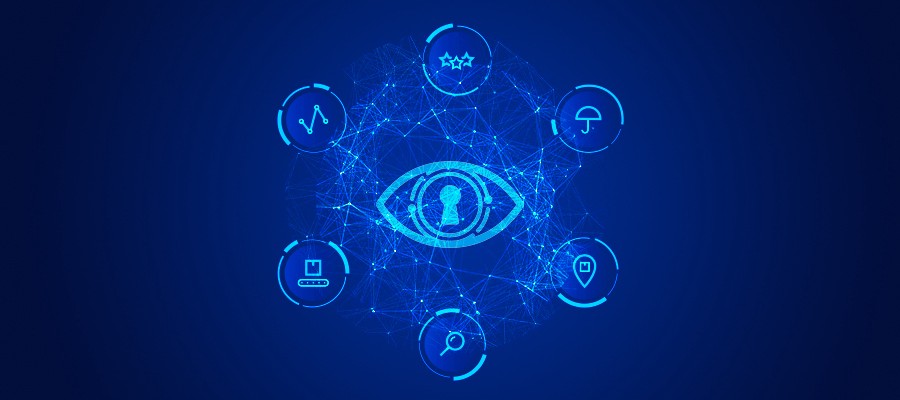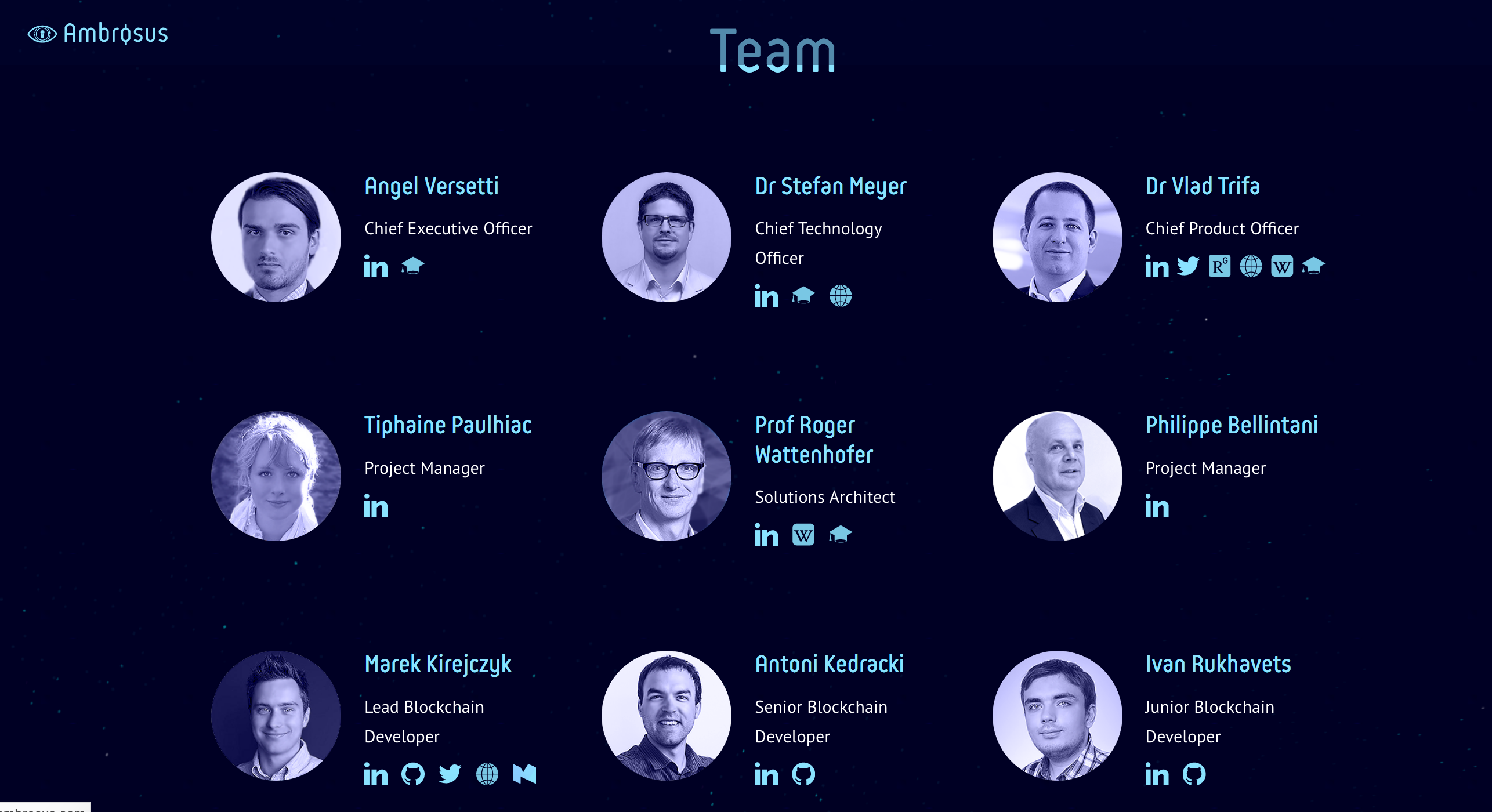Supply chain is one of the industries that seems to be especially suited for utilizing blockchain technology. Much like how a currency gets passed around from person to person, with each transaction forming a history of transactions, goods that are manufactured, transported, and eventually sold are also passed from entity to entity, creating a history of interactions.
Many blockchains, particularly those focused on currency, actually want to suppress that history, as it could impact the fungibility of the token. If it can be established that a token was at any time in the possession of someone using it in concurrence with an illegal activity, then there is a fear that the token could be considered worth less, or that it might be refused entirely. It’s a sort of guilt by association, even if the connections back to that illegal activity are remote.
For this reason, tokens try to establish ways of obscuring the paths that tokens take, by mixing transactions together or using encoded identities to obscure user identities.
In the case of a supply chain, this default behavior of blockchains to keep track of transaction history is embraced and emphasized. With each step along the path an item takes from source to destination recorded on a blockchain, each participant can operate with confidence that the materials are what they are supposed to be, the manufacturing process took place where it was meant to happen, and the delivery routes were followed as expected.
However, for all of this useful information to be on the blockchain where it can be reviewed and verified, the relevant data has to be submitted somehow, and that’s where mistakes or potential abuse could slip in. How would you be able to tell that a product really did pass through a particular warehouse, rather than someone simply claiming it did by entering passable information into the relevant forms or applications?
The ideal scenario would be to remove humans from the process and have that data come from the product itself. If the only way for a product to be marked as having passed through a particular warehouse was for it to be scanned in that warehouse, then more trust could be given to the overall system.
What Does Ambrosus Do?

Ambrosus seeks to establish a system with less human interaction by building the hardware necessary to track items more or less automatically via stickers and packaging that can be scanned for the relevant data.
With a combination of sensors that can track movement, temperature, and other metrics, along with RFID chips, QR codes, or other interactive ways to get and set data, Ambrosus hopes to develop a robust tracking system that can account for a variety of conditions.
The more disparate checks can be brought together, and the more automated it is, the more cross-checking is possible without human verification, leading to a high degree of confidence in the validity of the supply chain.
Ambrosus also has a token economy built into their blockchain solution, as most blockchain solutions do, but it works a little differently than one might expect. Usually, blockchains seek to build an economy of transactions where people pay for the exchange of information.
For example, in the case of a supply chain, a person wanting to request information about a product’s history might be required to pay a certain amount of tokens to retrieve that data from the network. Transactions based on fundamental usage of the system incentivize people to acquire tokens and give the network value.
In the case of Ambrosus, tokens are used to represent an item being tracked on the blockchain. A certain portion of Amber, the Ambrosus token, must be pinned to an item, and then as that item moves through the supply chain, information about how that item is handled and where it has been is attached as metadata on that token.
The token cannot be traded or exchanged so long as it is tied to a product in a supply chain, so essentially people who use the network most are staking value by purchasing more Amber to ride along with their products. The more people need to use the network, the more Amber must be purchased, driving up its value.
Ambrosus is not merely making hardware, it also provides a framework for developers to make dapps to meet the inevitable unanticipated niche needs that companies often have.
This, plus the fact that there is no reason their tracking technology could not be applied to anything that needs tracking, not merely products on a supply chain, means that Ambrosus is positioned to potentially be a significant player in the emerging Internet of Things, or IoT. The same technology could tell you what items are in your fridge, and what items you need to pick up at the store on the way home, or what inventory is in your warehouse.
How far Ambrosus can take their technology in the marketplace is limited only by how far users want to take it.
History of Ambrosus
Ambrosus was started in 2016 with a focus on the food and drug industry specifically. The goal was to create a more comprehensive system for tracking food from “farm to fork,” in order to create sustainable, ethical, and reliable practices for the global food supply.
Ambrosus was one of the most successful ICOs in 2017, raising US$36 million, placing them in the #12 spot in terms of most money raised.
The Ambrosus Team

Ambrosus was founded by Angel Versetti and Dr. Stefan Meyer. Versetti has previously worked with the United Nations in their Trade and Investment Division and Department of Technology and Industry. Dr Stefan Meyer’s experience is with food analysis and sensor technology, having worked at Nestlé, MHM Microtechnique, and Vitargent Biotech.
The current Ambrosus team consists of nearly 30 members, and 11 advisors. Notable among the advisors are Dr. Gavin Wood, co-founder of Ethereum, and Dr. Jutta Steiner, former chief of security for the Ethereum Foundation.
Competitors and Challenges
As mentioned above, supply chain systems are a natural fit for blockchain technologies, so as one would expect, there are a number of companies in this space, such as VeChain, Modum, OriginTrail, Wabi, WaltonChain, and more. They differ by degrees of specialization and approach.
For example, OriginTrail also targets the global food supply market, but is focused on using current labeling standards for tracking, and not offering any hardware solution like Ambrosus does. Other differences are determined by region, such as WaltonChain currently establishing themselves in Asia, while Ambrosus, based out of Switzerland, has connections within Europe.
Only time will tell if these differences are advantages that lead to greater success, or merely determinants of which niche each will belong to. While the current landscape is big enough to accommodate a lot of growth for multiple companies, meaning there is room for investment to accrue in value for many of the current line up of contenders, ultimately one would expect to see some winners and losers.
It’s in the interest of most companies who are part of a supply chain to have interoperability or universal standards so that they are not locked in to a protocol that limits their ability to work with other suppliers and buyers. For that reason, it seems reasonable to expect some pressure to weed out blockchain companies that fail to provide satisfactory solutions.
How to Purchase and Store Ambrosus
The token for Ambrosus is called Amber, with the ticker symbol AMB. It’s an ERC-20 token, and there is a total supply of 361,477,438 AMB, of which there are currently 144,590,975 AMB in circulation.
It can be bought on selected exchanges such as HitBTC, Binance, and Kucoin. There currently isn’t an Amber specific wallet, but AMB can be stored on any ERC-20 compatible wallet.
Conclusion
Ambrosus started out of the gate with a very promising ICO and has some good foundations in terms of its team and its network of government and business associations. They are meeting a specific and well-defined need within a global market worth billions of dollars. There is little reason to believe that they are not a strong contender to achieve the goals they have set out for themselves.
They have currently decided to focus on the food and pharmaceutical supply chain markets, which sensibly grounds them in specific areas of development. It is, in a sense, a page less blank so that their development is focused. However, their technology has the potential for much wider usage, meaning they could evolve and pivot in response to demands with more ease than other niche blockchain projects.
The main challenge Ambrosus faces comes from the number of equally capable and well-supported competitors vying for the same space. To what degree the market can support multiple players is not clear, and it is less clear what kind of service the market will respond better to. There are good arguments to be made on both sides for implementing a vertically integrated hardware solution to support the blockchain, or for forsaking hardware altogether and leveraging existing tracking systems.
Evaluating whether or not Ambrosus could capture a significant amount of the global supply chain market will be as much a matter of watching its competitors as it will be about following Ambrosus itself.
The Ambrosus website is the place to learn about the project, and one should always read the whitepaper for any blockchain project before investing. You can follow updates on their Twitter or their Medium blog, or join in discussions on their Telegram channel or Reddit forum.

